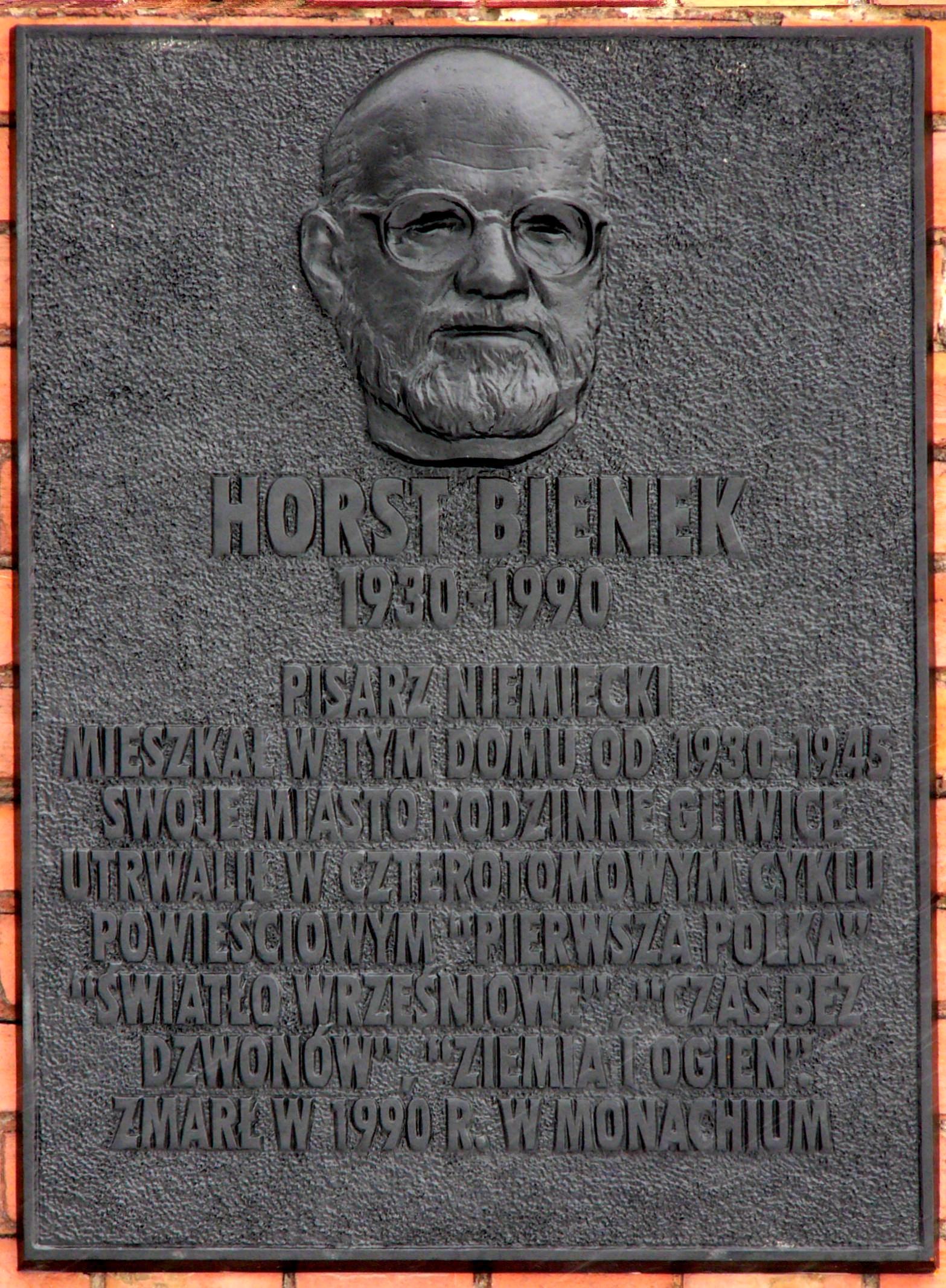Horst Bienek on:
[Wikipedia]
[Google]
[Amazon]

 Horst Bienek (May 7, 1930 in
Horst Bienek (May 7, 1930 in

 Horst Bienek (May 7, 1930 in
Horst Bienek (May 7, 1930 in Gleiwitz
Gliwice (; german: Gleiwitz) is a city in Upper Silesia, in southern Poland. The city is located in the Silesian Highlands, on the Kłodnica river (a tributary of the Oder River, Oder). It lies approximately 25 km west from Katowice, the re ...
– December 7, 1990 in Munich
Munich ( ; german: München ; bar, Minga ) is the capital and most populous city of the States of Germany, German state of Bavaria. With a population of 1,558,395 inhabitants as of 31 July 2020, it is the List of cities in Germany by popu ...
) was a German novelist
A novelist is an author or writer of novels, though often novelists also write in other genres of both fiction and non-fiction. Some novelists are professional novelists, thus make a living writing novels and other fiction, while others aspire to ...
and poet
A poet is a person who studies and creates poetry. Poets may describe themselves as such or be described as such by others. A poet may simply be the creator ( thinker, songwriter, writer, or author) who creates (composes) poems (oral or writte ...
.
Life
Born in Gleiwitz, Upper Silesia, Germany (todayGliwice
Gliwice (; german: Gleiwitz) is a city in Upper Silesia, in southern Poland. The city is located in the Silesian Highlands, on the Kłodnica river (a tributary of the Oder). It lies approximately 25 km west from Katowice, the regional cap ...
, Poland), Bienek was forced to leave there in 1945, when Germans were expelled from Silesia. He resettled in the eastern part of Germany. For a time, he was a student of Bertolt Brecht
Eugen Berthold Friedrich Brecht (10 February 1898 – 14 August 1956), known professionally as Bertolt Brecht, was a German theatre practitioner, playwright, and poet. Coming of age during the Weimar Republic, he had his first successes as a pl ...
. In 1951, he was arrested by NKVD
The People's Commissariat for Internal Affairs (russian: Наро́дный комиссариа́т вну́тренних дел, Naródnyy komissariát vnútrennikh del, ), abbreviated NKVD ( ), was the interior ministry of the Soviet Union.
...
and sentenced in a show trial
A show trial is a public trial in which the judicial authorities have already determined the guilt or innocence of the defendant. The actual trial has as its only goal the presentation of both the accusation and the verdict to the public so th ...
to 25 years of labour for "anti-Soviet incitement" and alleged espionage
Espionage, spying, or intelligence gathering is the act of obtaining secret or confidential information (intelligence) from non-disclosed sources or divulging of the same without the permission of the holder of the information for a tangibl ...
on behalf of the United States, and sent to a Gulag
The Gulag, an acronym for , , "chief administration of the camps". The original name given to the system of camps controlled by the GPU was the Main Administration of Corrective Labor Camps (, )., name=, group= was the government agency in ...
concentration camp in Vorkuta
Vorkuta (russian: Воркута́; kv, Вӧркута, ''Vörkuta''; Nenets for "the abundance of bears", "bear corner") is a coal-mining town in the Komi Republic, Russia, situated just north of the Arctic Circle in the Pechora coal basin at ...
. When he was released as the result of an amnesty in 1955, he settled in West Germany. Much of his writing addressed the theme of his uprooting from his Upper Silesian homeland
Although he was homosexual, his autobiographical writings never discussed openly his own homosexuality, and his novels only on occasion allude gently to homosexual attraction.
Bienek died in Munich in 1990 from AIDS.
Work
Bienek was the winner of numerous prizes, including theNelly Sachs Prize
The Nelly Sachs Prize (German: ''Nelly Sachs Preis'') is a literary prize given every two years by the German city of Dortmund. Named after the Jewish poet and Nobel laureate Nelly Sachs, the prize includes a cash award of €15,000. It honours ...
in 1981. His best-known work is the four-volume series of novels dealing with the prelude to World War II
World War II or the Second World War, often abbreviated as WWII or WW2, was a world war that lasted from 1939 to 1945. It involved the vast majority of the world's countries—including all of the great powers—forming two opposin ...
and the war itself, Gleiwitz, ''Eine oberschlesische Chronik in vier Romanen''.
Three of his works were adapted for film:
* '' Die Zelle'' (1970)
* '' Die erste Polka'' (1979)
* ''Schloß Königswald
''Schloss'' (; pl. ''Schlösser''), formerly written ''Schloß'', is the German language, German term for a building similar to a château, palace, or manor house.
Related terms appear in several Germanic languages. In the Scandinavian langu ...
'' (1987).
Four of Bienek's novels have been translated into English:
* ''The First Polka'' (1978)
* ''September Light'' (1986)
* ''The Cell'' (1973)
* ''Time Without Bells'' (1988)Horst Bienek: Time Without Bells.(Hardcover), 1988, Athenaeum Books, Ralph Read (Translator).
See also
* Horst-Bienek-Preis für Lyrik, a literary prize named after BienekReferences
{{DEFAULTSORT:Bienek, Horst 20th-century German novelists 20th-century German poets People from the Province of Upper Silesia People from Gliwice AIDS-related deaths in Germany 1930 births 1990 deaths German male poets German male novelists German-language poets Silesian-German people German gay writers German LGBT poets LGBT novelists 20th-century German male writers Officers Crosses of the Order of Merit of the Federal Republic of Germany 20th-century LGBT people Participants in the Vorkuta uprising